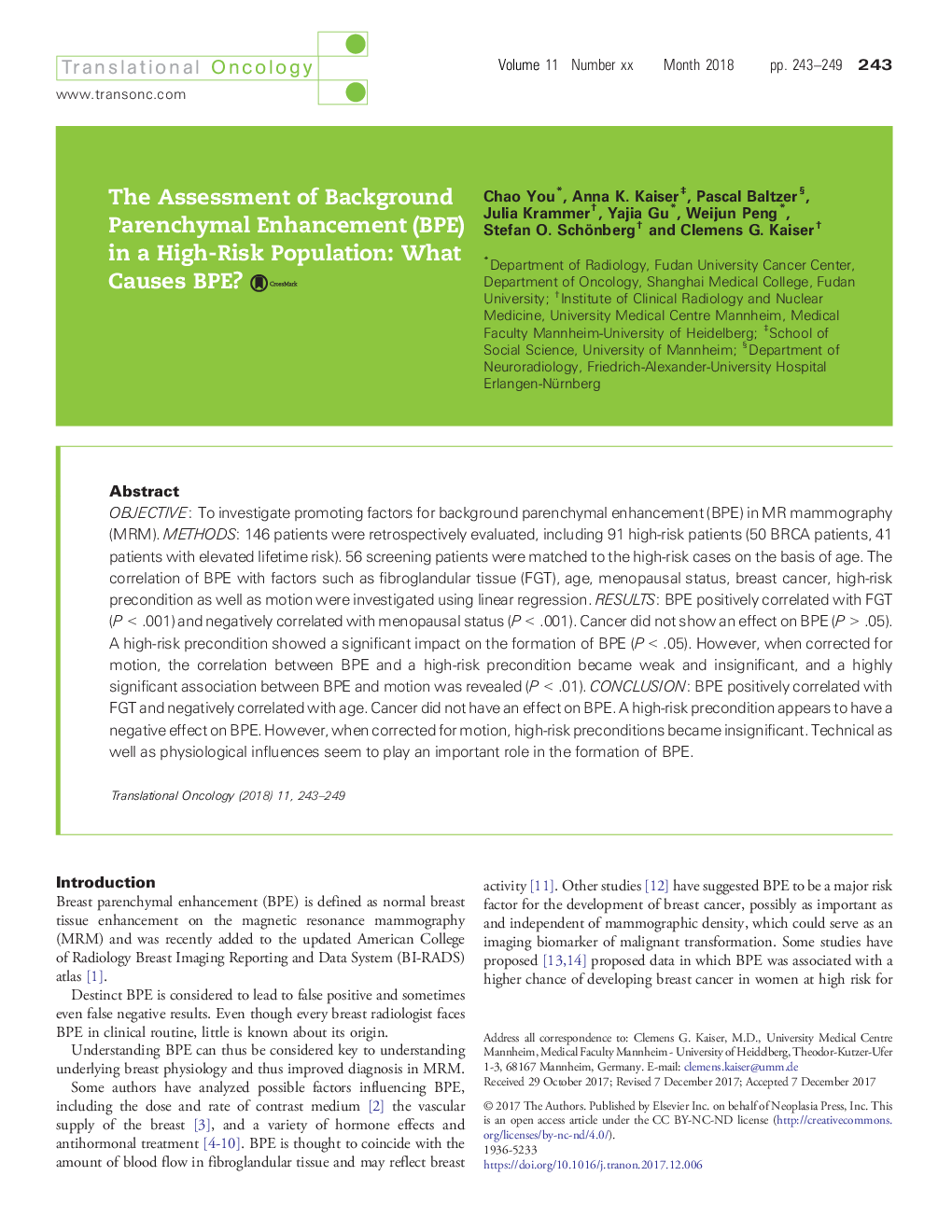| Article ID | Journal | Published Year | Pages | File Type |
|---|---|---|---|---|
| 8459949 | Translational Oncology | 2018 | 7 Pages |
Abstract
OBJECTIVE: To investigate promoting factors for background parenchymal enhancement (BPE) in MR mammography (MRM). METHODS: 146 patients were retrospectively evaluated, including 91 high-risk patients (50 BRCA patients, 41 patients with elevated lifetime risk). 56 screening patients were matched to the high-risk cases on the basis of age. The correlation of BPE with factors such as fibroglandular tissue (FGT), age, menopausal status, breast cancer, high-risk precondition as well as motion were investigated using linear regression. RESULTS: BPE positively correlated with FGT (PÂ <Â .001) and negatively correlated with menopausal status (PÂ <Â .001). Cancer did not show an effect on BPE (PÂ >Â .05). A high-risk precondition showed a significant impact on the formation of BPE (PÂ <Â .05). However, when corrected for motion, the correlation between BPE and a high-risk precondition became weak and insignificant, and a highly significant association between BPE and motion was revealed (PÂ <Â .01). CONCLUSION: BPE positively correlated with FGT and negatively correlated with age. Cancer did not have an effect on BPE. A high-risk precondition appears to have a negative effect on BPE. However, when corrected for motion, high-risk preconditions became insignificant. Technical as well as physiological influences seem to play an important role in the formation of BPE.
Related Topics
Life Sciences
Biochemistry, Genetics and Molecular Biology
Cancer Research
Authors
Chao You, Anna K. Kaiser, Pascal Baltzer, Julia Krammer, Yajia Gu, Weijun Peng, Stefan O. Schönberg, Clemens G. Kaiser,
